Related searches
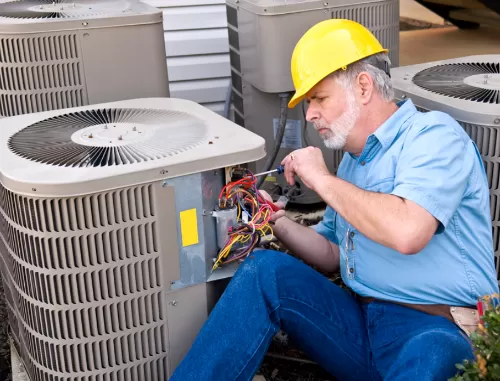
The Basics of Air Conditioning Systems
Air conditioning (AC) systems are designed to cool your home by removing heat and humidity from the indoor air. They work by circulating refrigerant through a series of coils, absorbing heat from the air and expelling it outside. The cooled air is then blown back into your home, lowering the temperature. Modern air conditioning units can be more energy-efficient, which helps reduce your energy bills during the hottest months of the year.
There are several types of air conditioning systems available to homeowners, including central air conditioning, window units, and ductless mini-split systems. Central air conditioning is typically the most efficient for cooling an entire home, as it distributes cool air through a network of ducts. Ductless mini-split systems, on the other hand, provide flexibility for homes without ductwork, allowing you to cool specific areas or rooms individually.
The Importance of Heating Systems
Heating systems are equally important as air conditioning systems, especially in colder climates. These systems work to maintain a comfortable indoor temperature by warming the air in your home. Furnaces, heat pumps, and boilers are the most common types of heating systems used in homes.
Furnaces are the most widely used heating systems in the U.S. They heat the air in your home by burning fuel (such as natural gas, propane, or oil) or by using electricity to warm the air. The warm air is then circulated through your home using ducts.
Heat pumps are energy-efficient alternatives that work by transferring heat from the outside air (even in cold weather) into your home. Heat pumps can also reverse their function in the summer, acting as air conditioners.
Boilers heat water and distribute steam or hot water through pipes to radiators or underfloor heating systems. This type of heating is typically used in older homes or in areas where radiators are preferred.
Choosing the Right System for Your Home
When it comes to selecting an air conditioning or heating system, there are several factors to consider:
Size of Your Home: Larger homes may require a more powerful central AC system or a multi-zone heating and cooling system, while smaller homes may benefit from a window unit or a ductless mini-split.
Energy Efficiency: Look for units with a high SEER (Seasonal Energy Efficiency Ratio) rating for air conditioners or AFUE (Annual Fuel Utilization Efficiency) for furnaces, as these indicate better energy performance and lower operational costs.
Climate: The type of system you choose should depend on the climate of your region. If you live in an area with mild winters and hot summers, a heat pump may be a good choice for both heating and cooling. However, in areas with extreme cold, a furnace or boiler may be more effective.
Budget: Initial installation costs and long-term maintenance should be factored into your decision. While a high-efficiency system may have a higher upfront cost, it can save you money over time with lower energy bills.
Regular Maintenance for Air Conditioning and Heating Systems
To keep your air conditioning and heating systems running smoothly and efficiently, regular maintenance is key. This includes changing air filters, cleaning ducts, and scheduling professional inspections. Here’s a quick checklist for both systems:
Air Conditioning Maintenance:
Change the air filter every 1-3 months to ensure clean airflow and prevent strain on the system.
Clean the coils and ensure that the evaporator and condenser coils are free of dirt and debris.
Check refrigerant levels and ensure there are no leaks.
Inspect the drainage system to ensure that water is draining properly and not backing up.
Heating System Maintenance:
Replace or clean the air filter to improve air circulation and reduce strain on the system.
Inspect the furnace burner and heat exchanger to make sure the system is operating safely and efficiently.
Check for gas leaks or any issues with the combustion process.
Clean the ducts and vents to ensure that heat is being distributed evenly throughout your home.
Scheduling an annual maintenance check with a professional technician can help prevent costly repairs and improve the efficiency of your systems.
Energy Efficiency and Smart Thermostats
With energy costs rising, many homeowners are looking for ways to make their heating and cooling systems more energy-efficient. Installing a smart thermostat is one of the most effective ways to reduce energy consumption. Smart thermostats allow you to set temperature schedules, adjust the temperature remotely, and monitor energy usage. This can help reduce your heating and cooling costs by ensuring your system isn’t running when you’re not at home or when you don’t need it.
Many modern heating and air conditioning systems are also designed to be more energy-efficient than older models, making them better for the environment and your wallet. Upgrading to a high-efficiency unit may require an initial investment, but the long-term savings on energy bills can make it worthwhile.
Conclusion
Air conditioning and heating systems are essential for maintaining comfort in your home year-round. By understanding the types of systems available, the importance of regular maintenance, and ways to improve energy efficiency, homeowners can make informed decisions that will keep their homes comfortable and energy costs manageable. Whether you're choosing a new system or upgrading an existing one, taking the time to research and maintain your HVAC systems will ensure that you enjoy a comfortable living environment throughout every season.
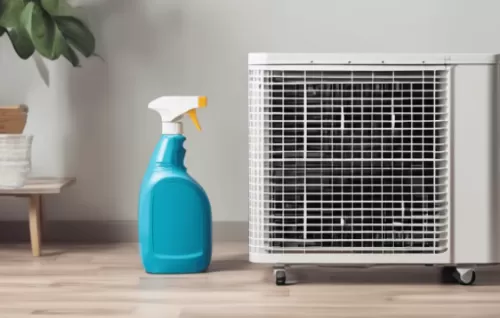 Ensuring Optimal Performance with Air Conditioner Cleaning
Ensuring Optimal Performance with Air Conditioner Cleaning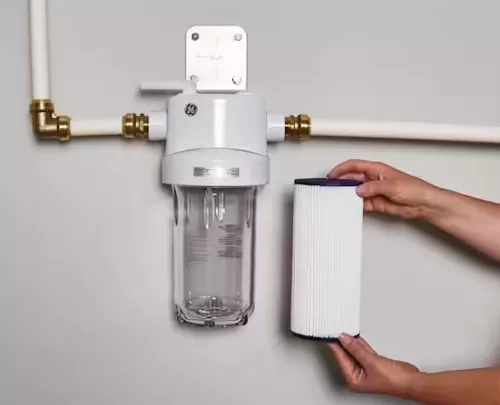 The Importance of a Reliable Water Filter for American Homes
The Importance of a Reliable Water Filter for American Homes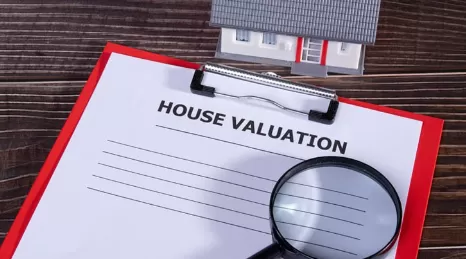 Get Accurate and Fast Home Valuations Online
Get Accurate and Fast Home Valuations Online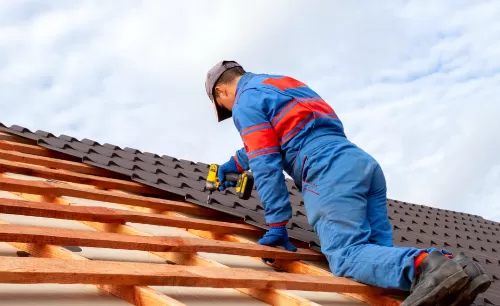 How to Choose the Right Roofing Company: A Comprehensive Guide
How to Choose the Right Roofing Company: A Comprehensive Guide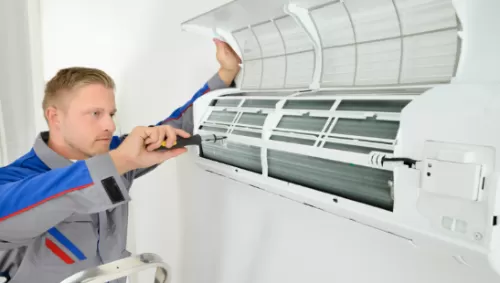 Maximizing Your Air Conditioner’s Performance: Choose the Right Cleaning Service
Maximizing Your Air Conditioner’s Performance: Choose the Right Cleaning Service



